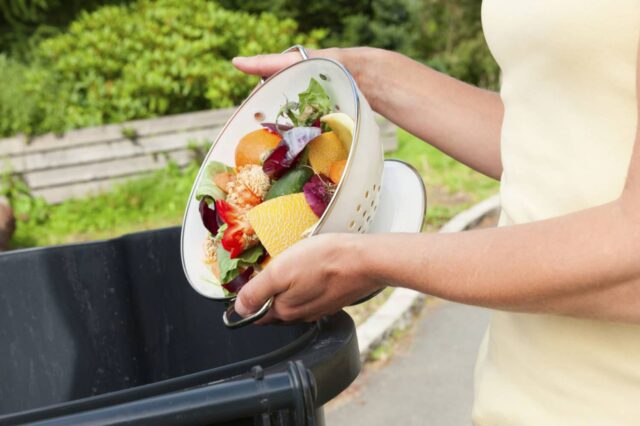As prices of vegetables, fruits and food in general climb the ladder every single day we are forced to contemplate the amount of food that gets wasted. Why are the prices rising if there is ample and enough food that most of it is being deliberately wasted and thrown away?

Extra leftover rice, one chapati, stale bread, everything finds its way in the dustbin in most Indian households. Our country sees thousands go hungry every single day. Nothing is being implemented by the government to upcycle food waste or to at least create something productive of it.
The Realities Of Food Waste
COVID-19 saw people dying of hunger every day in India. According to reports by the UN, enough food is produced globally to feed every single person yet almost 800 million people starve every day.
According to the Food and Organizational report, almost 17% of the food produced globally every day gets wasted which is approximately 931 million tons of food. Out of this around 97 million tons of food is wasted every day in India which has a value of almost Rs 92, 000 crores.
Almost 21 million tons of wheat rots in India in a year. Food wastage definitely causes economic loss but it also adds to the negative environmental impact. The economic loss due to food waste is extremely substantial and amounts to $1 trillion every single year. However, in addition to the economic costs, the environmental costs amount to up to $700 billion and the social costs reach $900 billion.
Read More: Why Is There A Major Food Shortage In North Korea That Could Lead To Millions Of Deaths?
Moreover, the production of rice emits methane, a major global warming gas because of the decomposition of organic matter in the fields. Therefore, the wastage of the grain leads to a bigger negative impact on the environment.
Food waste is also responsible for the waste of natural resources.
- For example, the wastage of rice leads to the wastage of rice which is required in huge quantities for the production of the grain.
- Estimates say that almost 230 cubic kilometers tons of fresh water is wasted in the production of grains which can easily be used to provide fresh drinking water facilities to 10 crore people a year.
Overall, India ranks seventh in terms of food waste while the Russian Federation leads the list. “We simply cannot allow one-third of all the food we produce to go waste or be lost because of inappropriate practices, when 870 million people go hungry every day,” the food agency’s director-general Jose Graziano da Silva has said to reporters in a conference.
Hence, it is pretty evident the wastage of food that is usually gone unaware cripples the country’s economy to a grave extent. The measures that the government should undertake are containing wastage in transportation, improving storage, and speeding up the processing of food so that grains can be saved and wasted less
What Can Be Done To Help With This
Food waste is difficult to manage as it puts pressure on the waste management systems, contributes to pollution, and of course, leads to food insecurity and deprivation. Hence, it is extremely important to control wastage.
It is imperative that governments undertake measures to conserve food; however, some things can also be done to reduce waste on a household basis.
Using up all left-overs kept in the fridge, selecting and buying groceries according to their shelf-life, composting spoiled food and the biodegradable wastes obtained from the prepping for meals are just a handful of ways we can use to conserve food at the household level. After all, change starts at home.
Image Sources: Google Images
Sources: IndiaToday, TheCSRJournal, TimesNowNews, HindustanTimes +more
Meet The Blogger: Charlotte
This Post is Tagged Under: prices, vegetables, fruits, food, prices rising, upcycle food waste, COVID-19, hunger, UN, Food and Organizational report, wheat rots, negative environmental impact, methane, a major global warming gas, decomposition, organic matter, Russian Federation, Jose Graziano da Silva, pollution, food insecurity, deprivation